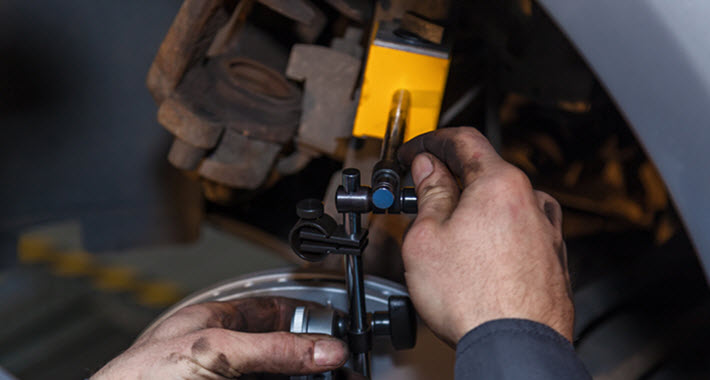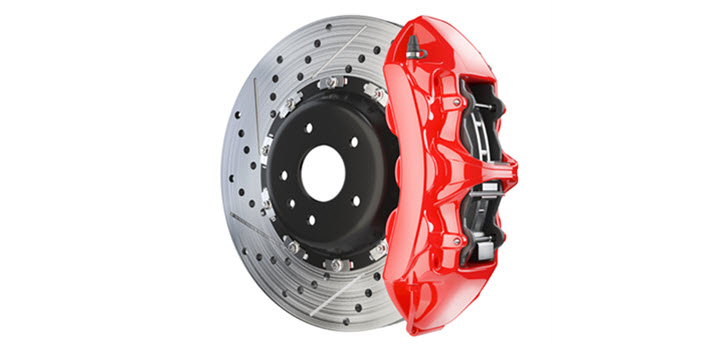When the trusty Land Rover was originally designed and manufactured, it was with an entirely utilitarian viewpoint in mind, intended to aid soldiers with transport in active war zones. After World War II, however, these vehicles were in great surplus. The simple and sturdy design made it perfect for use as vehicle for agricultural use and other heavy duty tasks involving off-road terrain.
However, by 1989, the Land Rover started to enter the consumer and family market. The newly-designed Land Rover SUV heralded the brand’s change to a luxury vehicle manufacturer. Nowadays, Land Rovers are the most popular 4×4 SUVs on the market. They are reliable and spacious yet still have lavish interiors for a comfortable ride.
Even the most reliable car will begin to fail given time, use, and poor maintenance practices. One of the Land Rovers foibles is its propensity to develop weak rear brake calipers that will often need to be replaced. With this in mind, let’s take a closer look at the issue.
What is a brake caliper?
Most cars use discs in their brake system, usually at the front of the vehicle. The Land Rover has this, but also has disc callipers in the vehicle’s rear. There are usually 2 or 4 calipers on a Land Rover. Their role is to receive brake fluid when the brake pedal is pressed. This fluid builds up, creating pressure on the piston which sets off a chain reaction that causes the brake pads to push against the rotors which then slows or stops your vehicle.
Why might my Land Rover’s brake calipers fail?
Aside from your engine system, your brake system is usually the hardest working of your car. Just think how many times throughout a single drive you press the brake pedal, and now multiply that by how many times in a week, month, year, and so on. Put simply, it’s one hard working system. Because of this, one of the leading reasons why brake calipers fail is simply time and use.
Heat is another factor which can cause brake calipers to deteriorate more rapidly. Excess heat can cause the seals on the calipers to become worn out, allowing for brake fluid leaks. If the seals become weak, the calipers themselves can become rusty and ineffective.
As a rule of thumb, the more mileage your Land Rover has done, the more likely the brake callipers will need replacing. With average use, brake calipers should last around a decade, but with more excessive use or a poor maintenance history, this estimation may be reduced.
What symptoms am I likely to notice if my brake calipers fail?
There are some signs and symptoms that you may experience that are typically synonymous with brake calipers that are beginning to fail. The most noticeable of these signs is definitely odd or high-pitched sounds are coming from your Land Rover when you press the brake pedal. This sound will typically come from the rear wheel area of Land Rover. It is usually indicative of sticking calipers caused by worn out seals.
Brake fluid leaks are probably the most visual indication of a worn out brake caliper. This shows that the seals surrounding the caliper have become worn down and are failing, allowing the fluid to leak freely. When this occurs, speedy replacement of the brake calipers is a must. Any problem to do with the brakes of your vehicle constitutes a safety concern not just to you as the driver, but other drivers and pedestrians around you.
Seek Expert Repairs
As faulty brake calipers is an issue synonymous with Land Rovers, you should always bring your vehicle to a Land Rover specialist for both repairs and servicing. Land Rover experts will know the foibles of your make and model inside out and will be able to monitor and repair them effectively.

Luckily, for those living in or around Green Bay, Manitowoc, and Sturgeon Bay, WI, Dell’s Service Center is on hand to help. With close to half a century of servicing under our belt, Dell’s Service Center is the expert in European imported cars. We have a 5-star rating across 199 reviews and counting. There is really no reason to look anywhere else.

